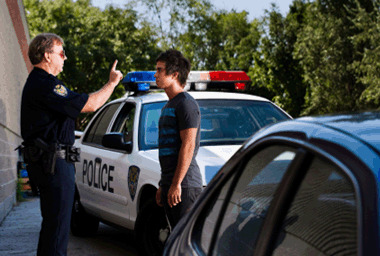May 19

What To Do When You Get a Ticket
You just got off work, you're minding your own business, and as you're driving you're thinking about your evening's plans when suddenly you observe a police cruiser's lights flashing behind you. You safely pull over and the police officer, not pleased enough with your driver's license, registration, and proof of insurance, has decided to issue you a citation. Or maybe a couple citations! You politely take the ticket from the officer as you're now running late for the plans you have after a long day at work. So what do you do? First, don't lose the ticket! It's a piece of paper, like many other pieces of paper, but if you lose it you might forget about it, and this could cost you a lot of money later. When you get home, place the ticket in a place where you won't forget about it. You must respond to the ticket (or the Notice of Infraction in legal lingo) within 15 days from the day or evening you received it. Remember, courts and post offices are closed on Sundays and some major holidays, so it is possible that you could have even less than 15 days to respond. But how do I respond, you ask? Great question. You have three choices, all of which I will go over here: 1. You can admit that you committed the infraction and pay the fine amount on the ticket (this is box 1). This is the worst choice you could make, because the Department of Licensing will be notified that you committed an infraction; if you've been cited for a moving violation that doesn't fall under a statutory exemption, your insurance carriers will be able to find out about your citation for the next 3 years, and your insurance premiums can rise; and you end up paying the state, county and/or city a fine amount as outlined on the ticket. It's like one error in baseball that just resulted in the bases being loaded against you, with no outs. 2. You can check the second box on the back of the ticket, where you admit that you commited the infraction, but you wish to mitigate and beg a judge to reduce your fine. This choice *might* be better than #1 above, if you want to attempt to get the fine amount (what lawyers call a bail amount) reduced. The problem is that the court still finds you committed the infraction, the Department of Licensing still gets notice, and your insurance company can still find about most tickets and your premium can still rise. An additional problem is that you almost always have to go to court to take "advantage" of mitigation, and there's a chance that the judge might not reduce the bail amount because he/she doesn't want to, or because the Legislature has made the type of citation for which you were cited impossible for the judge to reduce the bail amount. 3. You can check the third box, and contest the ticket. This is the only choice that allows you, when you respond to a ticket, to challenge the citation(s) and get your ticket dismissed; to not pay a monetary penalty (bail amount); and to keep your driver's record clear of citations for insurance purposes. In my practice, I strongly support #3. People do not come to me for #1 or #2, and they shouldn't. Checking the third box on the back of the ticket is the only way to have the opportunity to avoid a monetary cost to the State AND to keep your insurance rates reasonable. Often, the cost of hiring me to represent you is much smaller than the potential increase in insurance costs that a driver could face if he or she is found to have committed the infraction. And sometimes, if you choose to have me represent you, you might not even have to come to court, which can save you the expense of taking time off work. In my practice, I can't guarantee that I'll win every time, but I can guarantee that we'll fight hard every time. Before you decide to pay a lot of money to the government and to your insurance company, call me for a free evaluation of your ticket.











